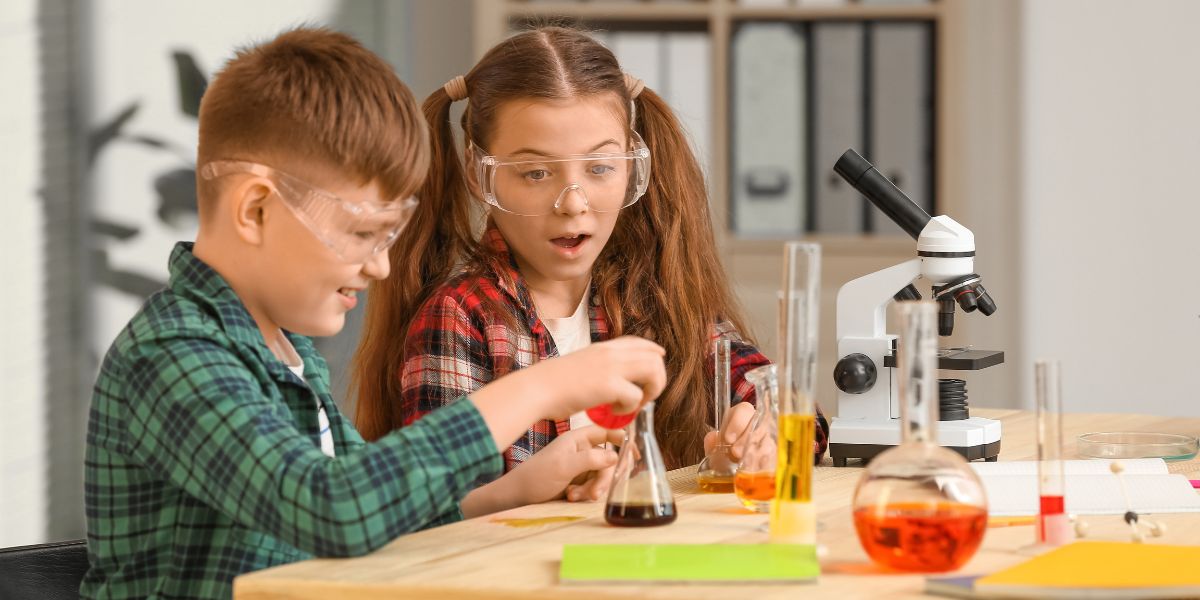
When setting up your home chemistry laboratory, ensuring you have the right equipment is crucial for your safety and the success of your experiments. From protective gear like safety goggles to essential glassware such as beakers and test tubes, each item plays a vital role in conducting experiments accurately and securely. But what about the chemicals themselves? Proper storage and handling are key, so knowing how to manage acids, bases, and other compounds is essential. Stay tuned to discover the full list of equipment needed for your at-home chemistry endeavors.
Safety Gear
When conducting chemistry experiments at home, ensure you have the necessary safety gear to protect yourself from potential hazards. The most critical safety equipment includes safety goggles to shield your eyes from chemical splashes and fumes that could cause irritation or injury. Additionally, wearing a lab coat or apron can help prevent your clothes from coming into contact with hazardous substances. It's also essential to have heat-resistant gloves to protect your hands when handling hot materials or equipment.
Another crucial piece of safety gear is a well-fitted face mask or respirator to avoid inhaling harmful vapors or gases. Make sure to check the compatibility of the mask with the chemicals you're using. Furthermore, having a fire extinguisher nearby is vital in case of accidental fires.
Lastly, always keep a first aid kit on hand to address any minor injuries promptly.
Glassware
To conduct chemistry experiments effectively at home, ensure you have a selection of appropriate glassware for various purposes. Glassware plays a crucial role in conducting experiments safely and accurately. A basic set should include beakers for mixing and heating liquids, test tubes for small-scale reactions, and graduated cylinders for precise volume measurements. Additionally, having a stirring rod can help with mixing substances uniformly. When choosing glassware, prioritize heat-resistant borosilicate glass to withstand temperature changes.
For more specialized experiments, consider acquiring a condenser to facilitate distillation processes or a Bunsen burner for heating. A volumetric flask is essential for preparing solutions with precise concentrations. Pipettes and droppers are handy for transferring small amounts of liquids accurately. Remember to inspect your glassware before each use for any cracks or chips that could compromise safety. Proper cleaning and storage are also crucial to maintain the integrity of the glassware for long-term use in your home laboratory.
Chemicals
Ensure you have a well-organized and labeled collection of chemicals before conducting any experiments at home. Having a variety of essential chemicals is crucial for performing diverse experiments. Start with common chemicals like hydrochloric acid, sulfuric acid, sodium hydroxide, and hydrogen peroxide. These are often used in introductory experiments and can be easily obtained from scientific supply stores or online retailers.
Additionally, having salts like sodium chloride, copper sulfate, and potassium permanganate can expand the range of experiments you can perform. Organic compounds such as ethanol, acetone, and acetic acid are also versatile chemicals that can be used in various reactions and demonstrations.
Always remember to store chemicals properly in a cool, dry place away from direct sunlight. Keep them tightly sealed in labeled containers to prevent contamination or accidental mixing. Before starting any experiment, familiarize yourself with the properties and hazards of each chemical to ensure safe handling.
Miscellaneous Supplies
Having a well-stocked supply of miscellaneous supplies is essential for conducting chemistry experiments at home. Items such as gloves, safety goggles, and aprons are crucial to protect yourself from potential hazards during experiments. Gloves shield your skin from chemicals, while safety goggles safeguard your eyes from splashes or fumes. Wearing an apron can prevent your clothes from getting stained or damaged by spills.
Additionally, having a variety of containers like beakers, test tubes, and petri dishes is necessary for carrying out different reactions and observations. These containers come in various sizes and materials, allowing you to adapt them to the specific needs of each experiment. Stirrers and pipettes are handy tools for mixing substances accurately and transferring liquids with precision.
Furthermore, labels and markers are indispensable for organizing your materials and noting down observations. Proper labeling helps prevent mix-ups and ensures that you can track the progress of your experiments effectively. Keeping these miscellaneous supplies well-organized and easily accessible will streamline your chemistry experiments at home.




